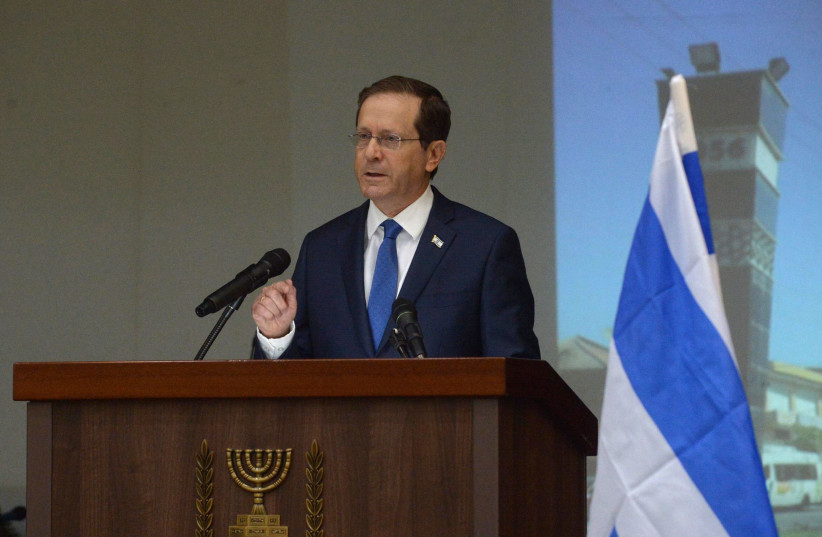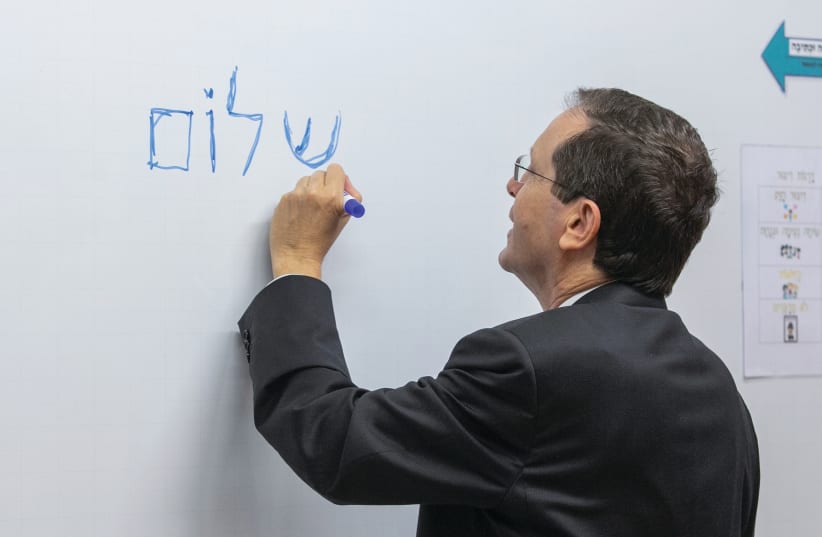Elected over the summer, President Isaac Herzog was given a long term of seven years during which he has an extraordinary opportunity to promote a transformation in Israeli society that would upgrade our quality of life. There is a good chance that his effort will receive a boost both from the Knesset that elected him president by an overwhelming majority and from the new government.
The Democracy Index of the Israel Democracy Institute states “social solidarity in Israel last October was only 17%” – the lowest figure in the last decade. Israeli society is torn along national, religious and economic fault lines. The “takers,” the effort not to be “suckers,” and the three Ks – power (koach), respect (kavod), money (kesef) – became “value norms” and the bon ton.
We are a society where leadership does not set a personal example and sometimes even the opposite. In the COVID-19 closures, for example, the president (former), the prime minister (former), ministers (former), Knesset members (former and present) and also the IDF chief of staff (present) and the head of the Shin Bet (former) (Israel Security Agency), violated the prohibitions imposed on everyone. Nor did they pay the required fine (except for MK Miki Levy of Yesh Atid who insisted on paying it). None of the elected leaders – neither from the Right, the Center nor the Left – publicly gave up their coronavirus grants, nor did they donate them to voluntary organizations.
What can a president do when he has no powers and no budgets? He can do a lot. The president can encourage personal example, leadership, compassion, concern for others, mutual responsibility – all essential for creating a “sense of community,” solidarity and social cohesion.
To strengthen social solidarity, Herzog can also work to upgrade philanthropic giving. In a leadership move he can make his donations public and call on everyone to follow suit and donate to third sector organizations. Such a call is especially requested in light of the drastic decline in donations to charities and voluntary and nonprofit organizations during the coronavirus period. In the first COVID-19 wave there was a 30% decrease in the donor rate and in the second corona wave there was a 35% decrease in the donor rate. The president can establish a national council for philanthropic giving headed by him, according to the Basic Law: The President.


The seven-year quantitative goal of upgrading philanthropic giving should be to double its rate of local GDP and equal it to the philanthropic rate of GDP as it exists in the US.
To strengthen dialogue among the four main sectors (“tribes”) – secular, religious, Arab and ultra-Orthodox – the president can initiate “Operation Dialogue.” In this operation, advanced technological tools can be used in order to realize many face-to-face meetings between Israelis belonging to the various sectors and to be assisted by a public advisory council composed of individuals capable of promoting dialogue. Herzog’s announcement that one of the first things he would do upon taking office would be to visit the mixed Jewish-Arab cities involved in recent riots (as he did) can encourage immediate fruitful dialogue between Jews and Arabs.
The presidential “seven-year plan” to improve the status of the state may bring about the necessary turning point in Israeli society long before the end of seven years, with intensified social cohesion and processes of ongoing dialogue between interest groups. The president, who is the Number One citizen by law, is not only the appropriate public figure to lead this transformation, but also the figure who has the power to lead it at this time.
The program is a multi-year megaproject and in the reality wherein governments change in Israel on an average of every two years and long-term plans are interrupted (or not at all implemented), the president is the only state personality who can provide close and personal support to the dialogue program throughout his seven years and ensure its continuity.
The writer is a hi-tech entrepreneur, chairperson of an NGO in the field of education and founder of the working group for the establishment of a national council for philanthropic giving.
